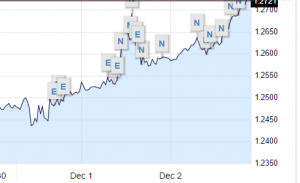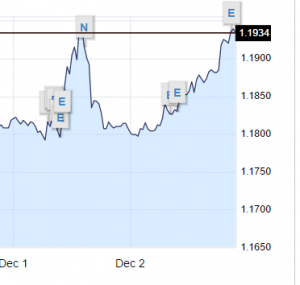Brexit minister David Davis open to solutions to keep access to single market

The pound enjoyed its strongest week of trading in a long time following comments by David Davis the head of the Brexit negotiations. When quizzed by the Labour MP Wayne David on whether Davis ‘Would consider making any contribution in any shape or form for access to the single market’. David willingly confirmed that the government would consider all options available stating ‘The major criterion here is that we get the best possible access for goods and services to the European market’ he continued ‘And if that is included in what he is talking about, then of course we consider it’ . Potentially providing the largest indication that the UK would preferably keep access to single market.
As the second largest net contributor the scenario of the UK paying contributions will no doubt also be seen appealing for the European Union. It is estimated the UK contributed in excess of £12.9BN in 2015 after rebates, no doubt this would be revised significantly but one would assume that a mutually beneficial deal would be possible.
Chancellor also open to contributing to EU?
The chancellor Phillip Hammond did little to dismiss the potential of contributions which could be viewed as weak by hard line leavers who resent paying any money to the EU. During a trip to Edinburgh he strengthened Davis’s rational saying ‘You can’t go into any negotiations expecting to get every single objective that you set out and concede nothing on the way’ Hammond continued ‘I think David Davis is absolutely right not to rule out the possibility that we might want to contribute in some way to some form of mechanism’
Boris the party pooper, or still wearing Leave hat?
However, Boris Johnson was more reluctant to endorse the idea. When questioned on the Andrew Marr show he appeared to distance the party from any speculation instead saying ‘That is obviously something that David Davis is considering but it doesn’t mean that a decision has been taken’ continuing he said, ‘I am not going to get involved in the minutiae of our negotiating position before we trigger article 50’.
Hard Brexit or Soft Brexit, what’s the difference?
Essentially Brexit means a break away from the European union however the government need to choose whether it’s in the UK’s best interest to have a bitter divorce or an amical split where the UK and EU remain friends. Hard Brexit, or the divorce would involve a complete severe both in trading terms and cooperation with the EU. The UK would no longer benefit from the single market which many estimate could equate to £66BN in tax revenue losses.
The UK could potentially have the ability to curb emigration; a topic which for many dominated their voting decision. Review our law without intrusion from the EU, although many expect that laws would remain largely the same.
Soft Brexit however is potentially viewed as a more measured approach. As discussed we could potentially have continued access to the single market and therefore benefit from current trading arrangements. In essence we would function in a similar way to the likes of countries such as Iceland, Liechtenstein and Norway. It is also plausible that we would be able to create trade deals separate from Europe. Other possibilities could be a level from free movement within Europe. Naturally this won’t be a have you cake and eat it scenario and the UK may have to succumb to some of the demands of the EU.
How the Pound benefitted
Following the initial comments by Davis regarding the UK’s possible open-ness to EU contributions in order keep access to single market, the GBP rallied to a three week high. The GBP/USD spiking from around 1.2624 on the opening of UK markets to 1.2688.
GBP/EUR faired just as well opening at around 1.1831 in the UK session and closing 1.1876. The Pound continued to climb during the US trading session and closed late Friday evening comfortably above 1.1930. It will be interesting to now see if Boris Johnson comments will be perceived as dismissive or guarded as to whether GBP/EUR will move closer to 1.20. No doubt Italy’s referendum and the Austrian elections will also have a hand in that.
If you require some guidance in order to make an informed decision on international payments or currency exchanges please don’t hesitate to contact us [email protected]

